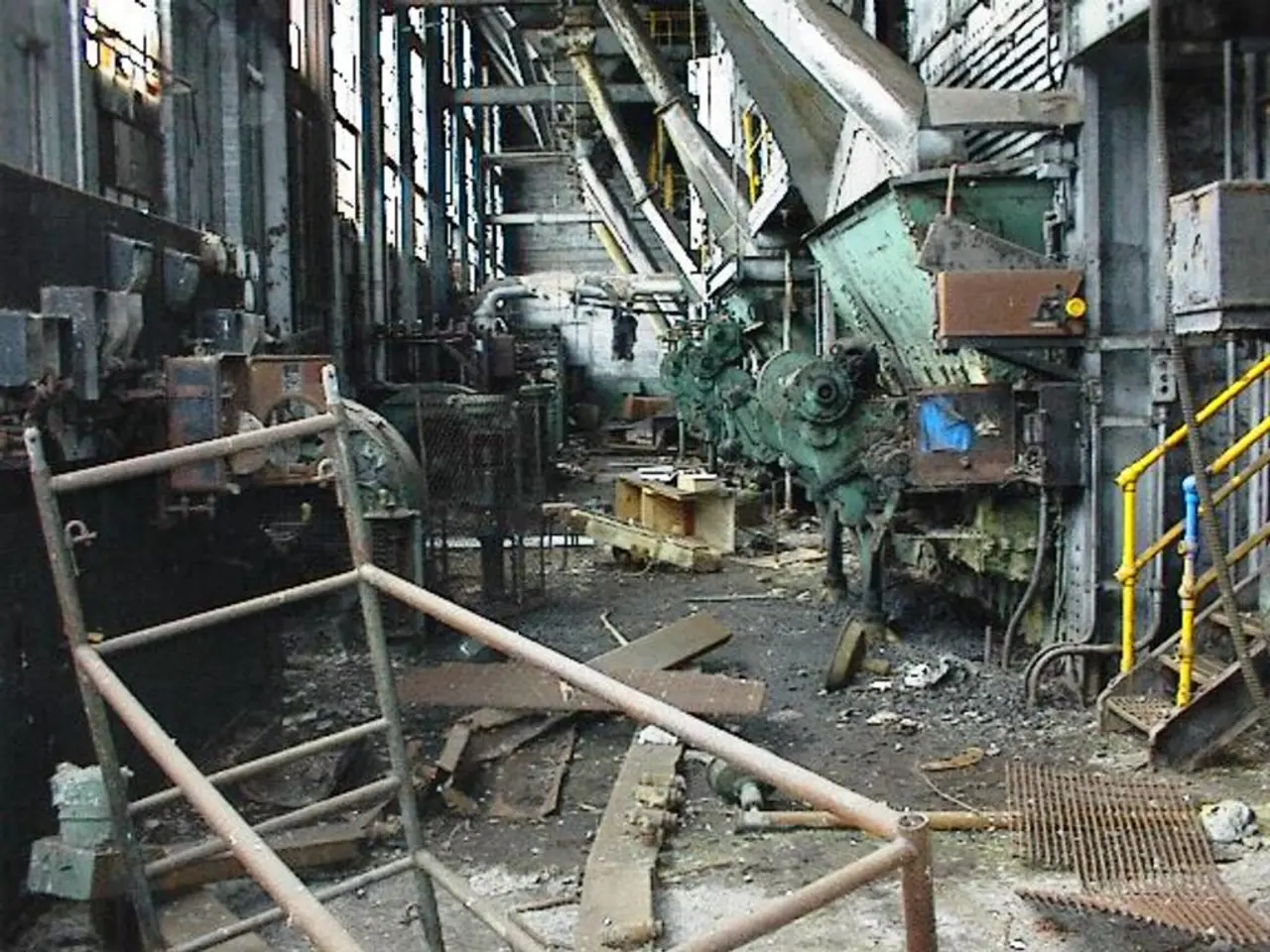Economic growth falters, hindering wealth creation and progress
In North Rhine-Westphalia (NRW), the heart of Germany's industrial sector, energy-intensive industries are grappling with escalating electricity and gas prices, exacerbated by the broader context of the European energy transition. NRW's historical reliance on heavy industry, coupled with its ambitious targets to reduce greenhouse gas emissions and shift to renewable energy sources, presents a unique set of challenges.
## Key Challenges
1. **High Energy Costs:** Rising electricity and gas prices have eroded the competitiveness of industries such as steel, chemicals, and manufacturing, putting them at a disadvantage compared to international counterparts.
2. **Transition Pressures:** The energy transition necessitates substantial investment in new technologies and infrastructure, creating uncertainty for businesses.
3. **Investment Uncertainty:** High upfront costs and regulatory complexities associated with adopting new energy technologies slow down necessary investments.
4. **Dependence on Fossil Fuels:** Many industries still rely on natural gas and coal, making them vulnerable to price volatility and supply disruptions.
5. **Regulatory and Public Acceptance:** The regulatory process for new energy projects can be lengthy and subject to public opposition, further complicating the transition.
## Discussed Solutions and Mitigation Strategies
1. **Hydrogen Economy Development:** The H2Valley RheinRuhr project aims to make the Rhine-Ruhr region a showcase for hydrogen-based energy supply, reducing dependence on fossil fuels and stabilizing energy prices in the long run.
2. **Renewable Energy Expansion:** There has been a strong push to increase the share of renewable energy sources, with large-scale wind and solar projects being awarded, signaling robust growth in this sector.
3. **Innovation and Digitalization:** The state government is supporting innovation and digitalization to enhance energy efficiency and integrate new technologies, helping industries adapt to changing energy landscapes.
4. **Support for Energy Storage:** Investments in combined photovoltaic and battery storage projects are expected to improve grid stability and provide more flexible, cost-effective energy solutions for industry.
5. **Policy and Funding Support:** Initiatives like the H2Valley RheinRuhr are seeking substantial EU and state funding to catalyze the shift towards low-carbon energy systems, helping to alleviate the financial burden on industry.
## Summary Table
| Challenge | Potential Solution | |-----------------------------------|-----------------------------------| | High electricity/gas prices | Hydrogen economy, renewables | | Transition investment costs | State/EU funding, innovation | | Regulatory complexity | Streamlined processes, public engagement | | Dependence on fossil fuels | Expanding renewables, hydrogen | | Price volatility/supply risk | Energy storage, grid flexibility |
In conclusion, while energy-intensive industries in NRW face significant challenges, a mix of hydrogen initiatives, renewable expansion, technological innovation, and targeted policy support are being pursued to overcome these obstacles. The future of these industries lies in adapting to the changing energy landscape while maintaining competitiveness within a global market.
- The escalating electricity and gas prices in the finance domain could be mitigated through investments in the hydrogen economy, such as the H2Valley RheinRuhr project, which aims to reduce dependence on fossil fuels and stabilize energy prices in the long run.
- The transition pressures being faced by energy-intensive industries in the finance sector can potentially be eased with the help of state and EU funding, as these investments can support innovation and digitalization, leading to enhanced energy efficiency and integration of new technologies in the industry.




